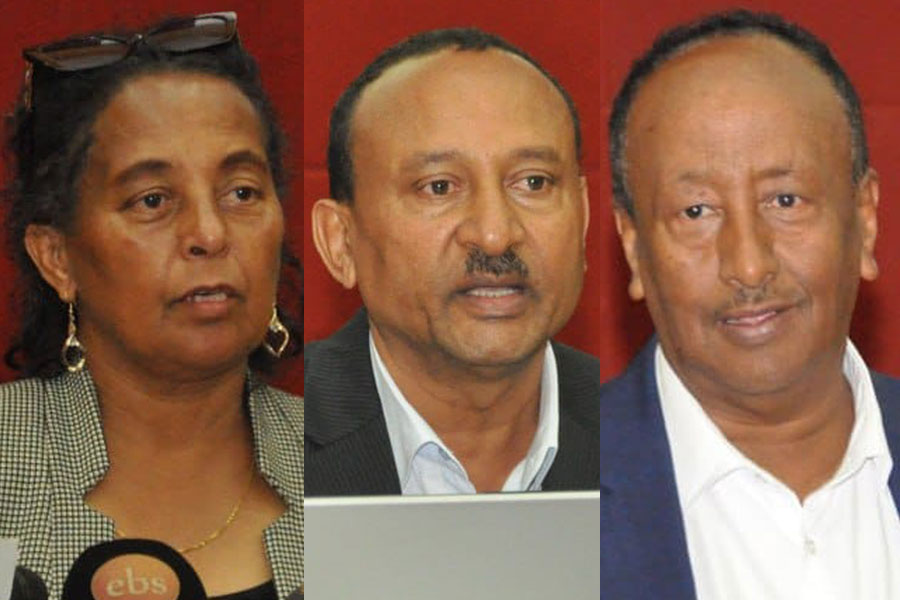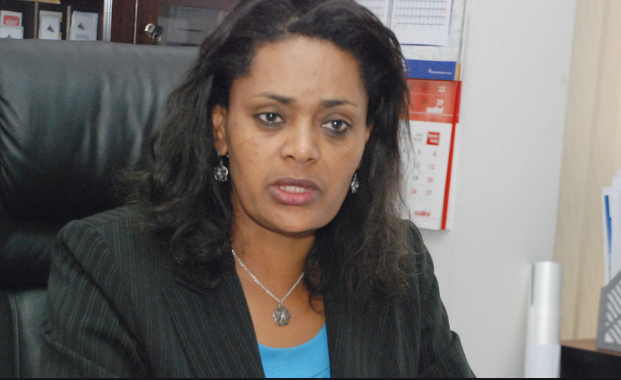
Fortune News | Apr 02,2022
Jan 4 , 2020
By Yemareshet Taye
If we are serious about combating corruption and maintaining impartiality and integrity in government offices, we need to set up codes of conduct for government officials to create a compliance culture and to have the best chance of success in fighting corruption, writes Yemareshet Taye, a compliance advisor at a French asset management firm based in Paris, France. She can be reached at ytgemeda@gmail.com.
Government officials are often faced with multiple questions when interacting with businesses, foreign institutions, lobbyists and consultants. They may find themselves ill-equipped to properly address these questions in the absence of clear guidance from their organisations.
Can I accept a gift I receive from a business or a foreign institution? Can I hire a family member for a new opening in my department? Can I accept a job offer from a business that is currently being supervised by my department? Can I accept a position as a board member of a company while still holding a position at a government office?
The importance of properly handling these various scenarios is to limit any unethical behaviour and pre-emptively fight against bribery and corruption.
Ethiopian government officials are expected to live up to the highest standards of professional ethics and to remain independent at all times. Their main objectives are to serve and act in the best interest of the government institution they work for and ultimately to act in Ethiopia’s best interest. Yet we continuously hear and read about government officials’ unethical behaviour and corruption scandals costing Ethiopian citizens billions of Birr. As one of the poorest countries in the world, this is not something we can afford or should accept to live with.
Ethiopia is ranked 114 out of 180 countries according to the Corruption Perceptions Index of 2018 published by Transparency International. The question is, how do we create an environment of ethical behaviour that will help reduce corruption in the country? Are there efficient preventive measures that can be put in place to deter government officials from acting an unethically? What can we learn from the countries (mostly developed countries) that are ranked among the least corrupt? What are they doing right?
Some of the answers can be found by looking at the rules of conduct that most government institutions in developed countries have established for government officials. These rules may not completely eradicate corruption, but they help reduce it significantly. They set foundations and expectations for individual behaviours across government institutions.
If our government institutions truly intend to fight corruption, they must first build a culture of compliance by establishing pre-emptive measures in the form of a code of conduct.
The first of these are rules around receiving gifts. A gift or hospitality (favour) can be a sum of money or any physical object, or the possibility to participate for free in events (such as complimentary tickets for sports events and concerts).
Government institutions should clearly set out rules regarding gifts and hospitalities if they have not already. They must define what they consider gifts or hospitalities that would not influence the impartiality of the officer who is receiving the invitation. For example, a government official invited for coffee or lunch by a business owner or a foreign institution may be permissible under certain scenarios and would, therefore, not require prior permission.
Government institutions must also consider what gifts or hospitalities could potentially put into question the impartiality of the officer who receives the gift. For example, questions may arise due to the monetary value of the gift or due to the identity of the person giving the gift, and hence these gifts may not be allowed without obtaining prior permission from the organisation (preferably a dedicated ethics office within the government institution). The objective of these rules is to maintain the impartiality of government officials who are expected to act with integrity and in the best interest of their organisation.
The other rule needed is around outside business activities. Outside business activity is defined as any activity outside the scope of the government official’s relationship with his or her organisation. Acting as a board member of a company and providing advisory services to a company may constitute an outside business activity.
Government officials are required to be independent, impartial, objective and loyal. Their personal interests should not compromise their impartiality and their duty to serve the interest of the organisation they work for.
Government institutions should, therefore, establish rules on the types of outside business activities (paid or unpaid), that are allowed or forbidden. They must also oblige employees to declare any outside business activity and any personal interest that might impair their independence (for example, the spouse of a government official being employed by a business seeking approval from the government office the employee is currently working in). These rules aim to avoid any potential conflict between government officials’ personal interests and the interests of the government institution they work for.
It is also important to establish rules for government officials (or only high government officials) leaving office to begin a new job within a short time frame. If the new activity is related to work the official carried out while she was a government official, the new position may potentially conflict with the legitimate interests of the government institution. This is particularly concerning when government officials seek lobbying positions to interact with the government institution they used to work for.
Establishing codes of conduct without setting up proper controls and sanctions will make the process inefficient. Controls must be performed by government institutions to ensure employees are declaring what they are required to declare and to ensure they are abiding by the rules set out in the code of conduct. The cost of non-compliance should also be clearly communicated to government officials and failure to comply with rules must be sanctioned.
If we are serious about combating corruption and maintaining impartiality and integrity in government offices, we need to set up codes of conducts for government officials to create a compliance culture and to have the best chance of success in fighting corruption.
PUBLISHED ON
Jan 04,2020 [ VOL
20 , NO
1027]


Fortune News | Apr 02,2022

Fortune News | Jan 12,2019


Radar | Dec 28,2019

Fortune News | Oct 19,2019

Fortune News | Apr 13,2019

Viewpoints | Nov 23,2024

Sunday with Eden | Nov 27,2018

Radar | Jun 01,2024

Fortune News | May 11,2019

Photo Gallery | 173894 Views | May 06,2019

Photo Gallery | 164122 Views | Apr 26,2019

Photo Gallery | 154202 Views | Oct 06,2021

My Opinion | 136591 Views | Aug 14,2021
Editorial | Oct 11,2025

Dec 22 , 2024 . By TIZITA SHEWAFERAW
Charged with transforming colossal state-owned enterprises into modern and competitiv...

Aug 18 , 2024 . By AKSAH ITALO
Although predictable Yonas Zerihun's job in the ride-hailing service is not immune to...

Jul 28 , 2024 . By TIZITA SHEWAFERAW
Unhabitual, perhaps too many, Samuel Gebreyohannes, 38, used to occasionally enjoy a couple of beers at breakfast. However, he recently swit...

Jul 13 , 2024 . By AKSAH ITALO
Investors who rely on tractors, trucks, and field vehicles for commuting, transporting commodities, and f...

Oct 11 , 2025
Ladislas Farago, a roving Associated Press (AP) correspondent, arrived in Ethiopia in...

Oct 4 , 2025
Eyob Tekalegn (PhD) had been in the Governor's chair for only weeks when, on Septembe...

Sep 27 , 2025
Four years into an experiment with “shock therapy” in education, the national moo...

Sep 20 , 2025
Getachew Reda's return to the national stage was always going to stir attention. Once...

Oct 12 , 2025
Tomato prices in Addis Abeba have surged to unprecedented levels, with retail stands charging between 85 Br and 140 Br a kilo, nearly triple...

Oct 12 , 2025 . By BEZAWIT HULUAGER
A sweeping change in the vehicle licensing system has tilted the scales in favour of electric vehicle (EV...

Oct 12 , 2025 . By NAHOM AYELE
A simmering dispute between the legal profession and the federal government is nearing a breaking point,...

Oct 12 , 2025 . By NAHOM AYELE
A violent storm that ripped through the flower belt of Bishoftu (Debreziet), 45Km east of the capital, in...